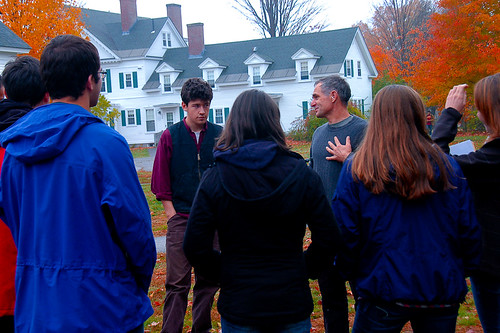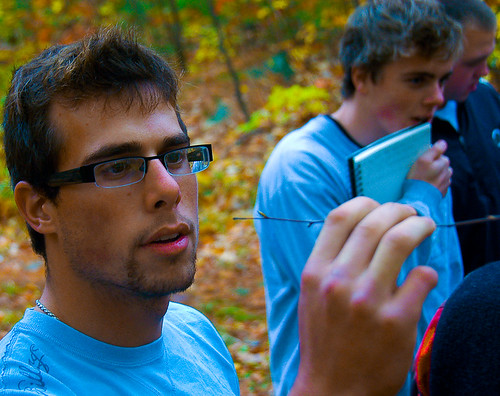Twitter is misunderstood by many who think it is a vehicle for narcissists who assume people want to know about their trivial behaviors. In fact, each of us creates our own "twitterverse," by following (and--more importantly-- selectively
unfollowing) tweeple (people who tweet.) If you want to follow people who offer bland aphorisms and descriptions of their breakfasts, fine. I started by following loads of people, (following people who followed people I admire,) and have been unfollowing many ever since. Smart tweeple offer links to interesting articles and blogs, including their own. The Head of Poughkeepsie Day School, Josie Holford, writes smart blogs. Yesterday, she tweeted a link to
an article in which she rewrote a blog by management guru Seth Godin entitled
Organizing For Joy.

Josie Holford essentially replaces Godin's references to "corporations" with "schools," so the distinction is between traditional, uninspired education and schools that take risks, treat people as human beings and inspire.

Godin writes, "If you fear special requests, if you staff with cogs, if you have to put it all in a manual, then the chances of amazing someone are really quite low. These organizations have people who will try to patch problems over after the fact, instead of motivated people eager to delight on the spot."

While enjoying Godin's and Holford's articles, I was monitoring tweets from education-technology maven
Will Richardson, who was attending the New Jersey Association of Independent Schools conference where Harvard's Tony Wagner was slaughtering the sacred cow of Advanced Placement curricula and lambasting American education in general. Richardson quoted Wagner declaiming, "There is only one curriculum in the United States: test prep."

While Wagner tackled the regrettable outcome of teaching-to-the-test education at the AP level, I couldn't help but consider the dumbing-down of public education as it grapples with No Child Left Behind, and other Social Darwinistic initiatives that expose teachers whose students don't attain test mediocre benchmarks and competencies. Speaking of corporations, Seth Godin writes, "The alternative, it seems, is to organize for joy. These are the companies that give their people the freedom (and yes, the expectation) that they will create, connect and surprise."

Happily, I believe that Wagner succumbs to hyperbole when he suggests that there is only one curriculum in the United States. As Josie Holford cleverly suggests, schools exist that treat students as whole beings, not simply vessels to be filled with stuff to be regurgitated on exam day.

Godin concludes, "These are the organizations that embrace someone who makes a difference, as opposed to searching for a clause in the employee handbook that was violated."








